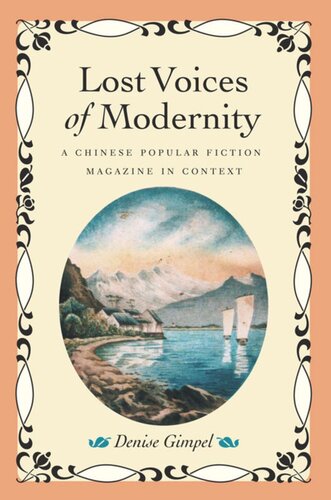

Most ebook files are in PDF format, so you can easily read them using various software such as Foxit Reader or directly on the Google Chrome browser.
Some ebook files are released by publishers in other formats such as .awz, .mobi, .epub, .fb2, etc. You may need to install specific software to read these formats on mobile/PC, such as Calibre.
Please read the tutorial at this link: https://ebookbell.com/faq
We offer FREE conversion to the popular formats you request; however, this may take some time. Therefore, right after payment, please email us, and we will try to provide the service as quickly as possible.
For some exceptional file formats or broken links (if any), please refrain from opening any disputes. Instead, email us first, and we will try to assist within a maximum of 6 hours.
EbookBell Team

4.8
44 reviewsLost Voices of Modernity uncovers the story of the most popular and perhaps the most maligned modern Chinese literary journal, Xiaoshuo yuebao (The Short Story Magazine). First published in Shanghai in 1910, Xiaoshuo yuebao boasted a circulation of ten thousand within its first three years of publication. Scholars have long characterized the journal as little more than superficial popular entertainment (primarily action/adventure and love stories) and attributed its early popularity to an urban audience's need for distraction and escape. Now, however, Denise Gimpel's persuasive and effective study reveals a journal of serious appearance and intent.
By placing publication, contributions, and contributors within their specific cultural, social, and political contexts, Gimpel provides an astonishingly cogent picture of a reform-through-fiction project created and managed by a dedicated body of writers attempting to address the concerns of the day. Xiaoshuo yuebao informed the growing reading public of national and international issues, science, and foreign lands. Read in context, the stories, essays, plays, and poems published in its pages--largely in the form of the "new fiction" that had been hailed as the sociopolitical cure-all of the early twentieth century--constitute a panorama of the reforms being discussed at the time at all levels of public and private life.